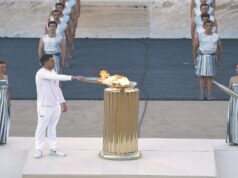Salute to the simplicity and adaptability of an Indian Soldier

By Brigadier Advitya Madan
It was mid-summer in 2007. I was holding the reigns of 15 Punjab, tasked with a peacekeeping role in the beautiful country of Lebanon. We were rubbing shoulders with several other European contingents. The Force Commander was an Italian; Major General Graziano.
Though the Israel – Lebanon war had ebbed down, the blatant violations by Israeli Merkava tanks across the blue line (border between both countries) were the order of the day. These transgressions generally occurred in one specific void which didn’t fall in any battalion’s area of responsibility. It was de-facto a ‘No Man’s land’, the underlying cause of daily violations.
Since this complicated issue couldn’t be resolved by the Sector Commanders, it got escalated (to borrow a corporate term) to the Force Commander. Therefore, the Force Commander was constrained to urgently call for a midnight Commanding Officers’ operational conference of all the country contingents.
The aim was to establish a new post on this piece of rugged terrain the very next day. The Force Commander opened the conference by amplifying the problem area. ‘Any volunteers’, he blurted out. This was followed by a long yet pregnant silence. His hawkish gaze first fell on the CO of one of his European contingent.
The CO strongly represented that the first washrooms had to be catered for his troops before he moved in. The second CO backed out due to a lack of recreational facilities in the area for his soldiers.
Another CO expressed his reluctance citing the long distance of the post from the nearest road head. Then, there was one CO who feared treading on the minefields, laid in the same area by the Lebanese army during the war.
One CO had come well-prepared for the conference armed with a long list of administrative requirements ranging from the number of containers (used as barracks) to the number of bulldozers required to clear the dense undergrowth.
Ultimately, the Force Commander turned towards me for my views. Indian Army’s ethos of ‘Never say No’ to a legitimate operational task egged me to say; ‘Sir, don’t worry, the new post will be occupied within 24 hours’.
All were flummoxed at my ebullient response. That night, I returned to my base with the confidence that my Sikh troops of 15 Punjab would never let me down.
Crisp orders were given to one of my best company commanders, to establish the new post at the said location within 24 hours. ‘Your new post will be inspected personally by the Force Commander after 24 hours’, I quickly added.
As expected, the Force Commander landed on the nearest helipad and walked uphill to that difficult inaccessible patch.
As he entered the new post, he was flabbergasted by the kind of operational preparedness of the Indian troops. All the perimeter defences had been dug up properly with troops on a practice ‘Stand-to’ in their trenches. Proper ‘Deep Trench Latrines’ (DTLs) had been dug up as per the Indian army drill to serve as so-called washrooms. The tents had been pitched in a military decorum all lined by meticulous snake trenches.
The Force Commander was simply dumbstruck. After inspecting the new professionally laid out post, he was in for a bigger surprise when the company langar cook affectionately offered him an Italian pasta personally prepared by him which he had learnt over last few months almost to perfection. It turned out to be the icing on the cake.
After signing the customary visitors’ book, he patted the company commander saying, ‘No wonder, your Indian Army has won all the wars hands down in all kinds of terrain’. You Indian soldiers are indeed the best in the world. The simplicity and adaptability of the Indian soldier carried the day



